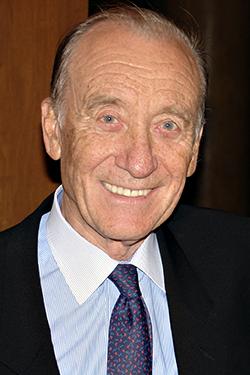Rodion Shchedrin

Rodion Shchedrin was born in Moscow on December 16, 1932, the son of a composer and music teacher. He attended the choir school and then studied at the Moscow Conservatory with Yuriy Shaporin (composition) and Yakov Flier (piano); In 1955 he completed his studies with distinction. Despite his abilities as a concert pianist, Shchedrin decided early on to pursue a career as a composer: in his early 20s, he wrote his first ambitious works. In 1958 he married the prima ballerina Maja Plisetskaya. The first great success as a composer came in 1967 with the world premiere of the ballet "Carmen Suite" at the Bolshoi Theatre in Moscow. From 1964 to 1969 he was professor of composition at the Moscow Conservatory. In 1968, Shchedrin refused to sign an open letter advocating the invasion of Czechoslovakia by Warsaw Pact troops. For more than a decade he was chairman of the Composers' Association of the Russian Federation, succeeding Dmitry Shostakovich and at his express request. In 1982 he visited the Munich Piano Summer for the first time. With the end of the dictatorial regime in the Soviet Union, Shchedrin, who was never a member of the Communist Party, was finally able to participate intensively in international music life. Since 1992, the composer has been living alternately in Munich and Moscow.
Shchedrin has succeeded in combining traditional and new forms using all modern compositional techniques, including aleatoric and serial techniques. His enthusiasm for Russian folklore and art music, poetry and literature characterizes his work and makes him an original Russian composer. This applies in particular to the third and fifth Concerto for orchestraThe Old Russian Circus Music (1989) and the Four Russian Songs (1998). Other instrumental works are due to Shchedrin's knowledge as a pianist: the six Piano Concertos or piano solo pieces such as the Olli Mustonen Questions (Elf Pieces for Piano) from 2003. Some of these works were premiered by Shchedrin himself as a soloist. Especially in the chamber music works, the composer shows the artistic use of parody techniques. In Balalaika for violin solo (1997), the string instrument becomes the starting point of a parody of experimental playing techniques and a virtuosity heightened into the absurd.
With his opera "Die toten Seelen" (after Gogol, 1976) and the ballets "Anna Karenina" (after Tolstoy, premiere dwelt 1972), "Die Möwe" (1979) and "Dame mit Hündchen" (both after Chekhov, 1985), Shchedrin brought classics of Russian literature to the musical theatre stage of the Bolshoi Theatre in Moscow. The Opera Lolita also stages a Russian contribution to world literature: the scandal novel of the same name by Vladimir Nabokov. The libretto for the opera, which premiered in Stockholm in 1994, comes from the composer's own workshop. For his fairytale opera A Christmas Tale (2016), which was performed for the first time at the Mariinsky Theater in St. Petersburg, Shchedrin resorted to a story by the Czech author Bosena Nemtsova, who is very popular in Russia. It is reminiscent of well-known fairy tales such as Sterntaler, Ms. Holle, Cinderella and Snow White. In the vocal works My time, my predator for tenor, narrator and piano (2002) based on texts by Ossip Mandelstam and the choral opera Boyarina Morozova (2006) the phrasing of the Russian language characterizes the music – in the first work in the form of a chamber music-stringent dramaturgy, in the latter as a large-scale Russian drama of life and suffering.
Rodion Shchedrin has been honoured many times with prizes and awards. In 1983 he became an honorary member of the Academy of Fine Arts of the GDR, two years later an honorary member of the International Music Council and in 1989 a member of the Academy of Arts Berlin. In 1992, President Boris Yeltsin awarded him Russia's State Prize for his choral work The Sealed Angel. A year later Shchedrin received the Dmitri Shostakovich Prize, and in 1995 the Crystal Award of the World Economic Forum Davos. In 2002, he was named Composer of the Year of the Pittsburgh Symphony Orchestra. In the same year he was awarded the Russian Order of State. In 2005 he became an honorary professor at the St. Petersburg Conservatory, and in 2008 at the Central Conservatory of Beijing. "For services to the Fatherland" Rodion Shchedrin was awarded the Russian Order of State 2nd Class in 2007.
Source: de.schott-music.com, machine translated
